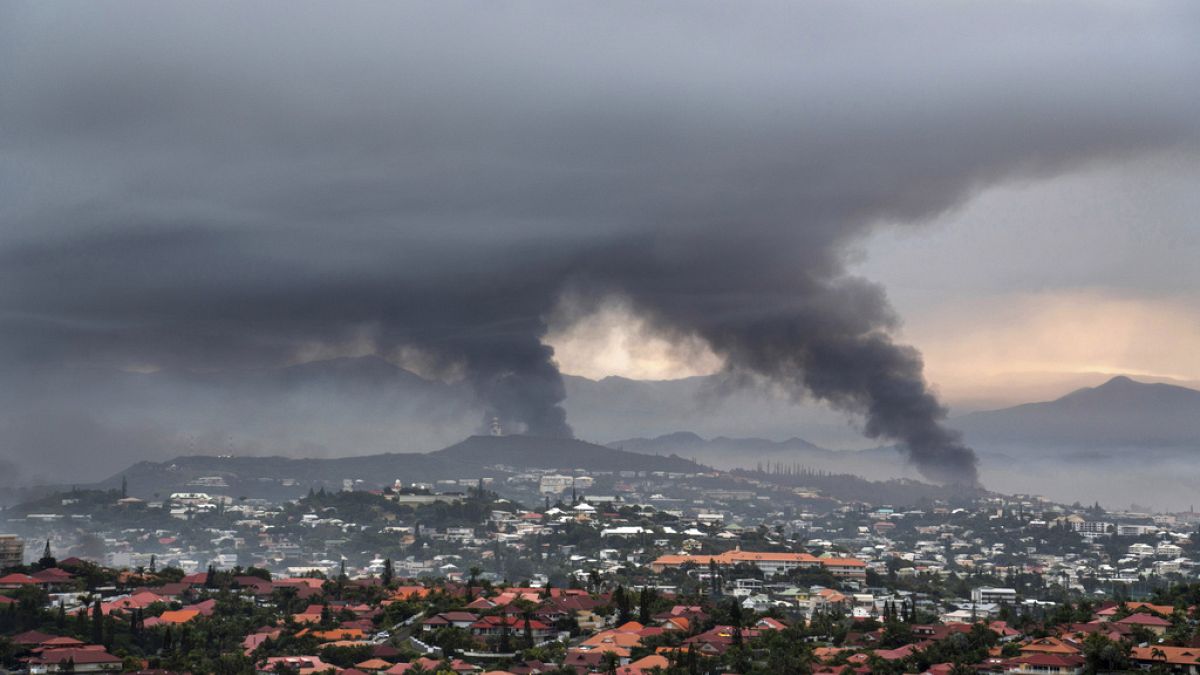A pro-independence party leader in the France-controlled Pacific archipelago of New Caledonia has urged supporters to remain mobilized as they push for full sovereignty. Christian Tein, head of the pro-independence party The Field Action Coordination Unit, called for resistance to Paris-imposed electoral reforms that the indigenous Kanak people fear will marginalize them further. The political unrest in New Caledonia has led to the erection of barricades on roads across the territory, resulting in seven deaths and significant destruction. French President Emmanuel Macron has imposed a state of emergency to address the situation, calling for the removal of barricades.
In a video message, Tein urged protesters to ease their grip on the barricades to allow for the transportation of essential supplies like fuel, food, and medicine. However, he emphasized that the barricades would remain until house arrest warrants for his party members are lifted, and the electoral reform that the Kanaks oppose is scrapped. Tein called for a coordinated, structured, and organized approach to achieving their goals without resorting to violence, stating that there has been too much suffering at stake. The ultimate objective of the pro-independence movement is for New Caledonia to obtain full sovereignty.
The issue of independence in New Caledonia has been the subject of three referendums organized by French authorities between 2018 and 2021, with each resulting in a “no” vote against independence. However, the pro-independence camp boycotted the last vote in December 2021. Macron has expressed a willingness to hold another referendum if local leaders can reach a new political agreement, provided that the barricades are dismantled to lift the state of emergency and restore peace. New Caledonia has a complex history, having become French in 1853 under Emperor Napoleon III and becoming an overseas territory after World War II, with French citizenship granted to all Kanaks in 1957.
The situation in New Caledonia has sparked protests and unrest, leading to calls for greater autonomy and sovereignty among the indigenous Kanak population. The push for independence has caused tensions with the French government, prompting Macron to impose a state of emergency in response to the escalating crisis. The pro-independence movement, led by Christian Tein, continues to resist Paris-imposed electoral reforms that they believe will further marginalize their community. The goal of the movement is to obtain full sovereignty for New Caledonia, despite previous referendums resulting in “no” votes against independence.
The ongoing political unrest in New Caledonia has resulted in a deadlock between the pro-independence movement and the French government. Macron’s imposition of a state of emergency and calls for the dismantling of barricades have intensified tensions in the archipelago. The pro-independence leader, Tein, has called for a strategic and non-violent approach to achieving their objectives, emphasizing the importance of coordination and organization. Despite the challenges and suffering faced by the Kanak people, the movement remains determined to pursue full sovereignty for New Caledonia, challenging the authority of the French government.
The future of New Caledonia remains uncertain, with the possibility of another referendum hanging in the balance. Macron’s hopes for a new political agreement that could potentially lead to greater autonomy for the territory hinges on the resolution of the current crisis. The pro-independence movement’s persistence and determination to resist unfavorable reforms and achieve full sovereignty highlight the deep-seated desire for self-determination among the indigenous population of New Caledonia. As the standoff continues between the pro-independence movement and French authorities, the path towards independence for the Pacific archipelago remains fraught with challenges and uncertainties.










